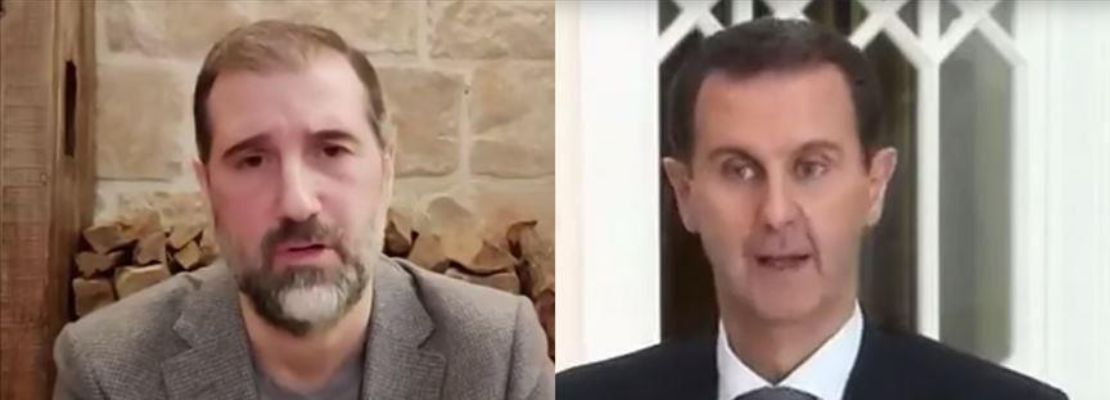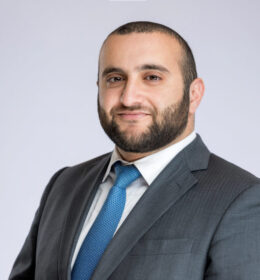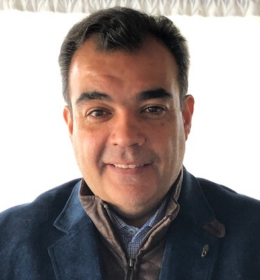On April 30, Rami Makhlouf, who is a cousin of Syrian President Bashar Assad and is thought to be Syria’s wealthiest businessman, released a monologue defending himself against government accusations of tax evasion and attempts to confiscate a substantial portion of his wealth. He followed this with another video on May 3. In many other states, this could be dismissed as scandal and gossip and safely ignored. The Syrian context, however, is unique and the event itself is so unusual that it merits closer scrutiny for possible domestic if not geopolitical implications. The rift reveals deepening dysfunction amid unprecedented pressure on the Assad regime and, if not resolved quickly, raises the prospect of a long, complicated intra-regime conflict.
An Atypical Situation
Visible rifts in the regime are rare in Syria, and the last major one was resolved easily, considering the circumstances. In March 1984, an unprecedented division emerged at the highest level of the Assad regime between Rifaat Assad and his brother, then-President Hafez Assad, after the two quelled a violent insurgency together. Rifaat, a man of substantial financial means and even greater political clout, took advantage of his brother’s temporary illness to plan an effective bid for regime leadership, deploying tens of thousands of loyalist troops in Damascus. Although the crisis was defused peacefully within the family in Hafez’s favor, Rifaat was sidelined and eventually exiled and Hafez emerged even more powerful than before.
Rami Makhlouf is no Rifaat Assad. He is not Bashar’s brother and not an Assad family member at all, nor has he deployed tens of thousands of fighters to contest the capital. In fact, in his current predicament, Makhlouf is the target rather than the instigator. Yet the Rifaat-Hafez episode offers a useful point of comparison to the emerging crisis between Makhlouf and key elements of the Syrian regime. Makhlouf is in some ways a trickier opponent than Rifaat was. More to the point, Bashar’s position today is weaker than Hafez’s in 1984. The Makhlouf crisis may not be resolved as quickly or as cleanly.
Makhlouf’s Position
Makhlouf is not merely Assad’s cousin but also part of an intimate inner circle the latter nurtured after taking power in 2000 following his father Hafez’s death. In fact, the Makhlouf family has long played a key role in the Syrian regime, including in finances (Rifaat’s marriage to a Makhlouf was one reason he was handled so gently). Rami Makhlouf is also known to be close to Bashar’s powerful brother Maher. In the years before the 2011 uprising, Makhlouf had become the most prominent symbol of a new business elite that emerged from Assad’s crony capitalist economic program, amassing immense wealth that accounted for up to 70 percent of the Syrian economy. The Makhlouf family has also built up deep networks of influence among Alawite officers, criminal organizations, paramilitary groups, and religious figures alike. In other words, Rami Makhlouf is both a pillar of Assad’s regime and a power unto himself.
It is therefore unsurprising that Makhlouf became the target of deep anger among the 2011 protesters, testing his loyalties and priorities across several dimensions. First, Makhlouf was part of Bashar’s inner circle and therefore automatically the target of widespread hatred. Second, he was an Alawite – and a powerful one – amid an increasingly polarized sectarian environment and Sunni-dominated opposition movement. Third, he embodied a new commercial class seen as corrupt and predatory. Finally, the Makhlouf family was seen as deeply embedded in elements of the regime – including regime enforcers – that targeted protesters.
Makhlouf handled these pressures effectively enough and without breaking ranks with Assad. He cast himself as Assad’s most steadfast supporter. In a well-publicized move early in the uprising, he claimed to have renounced his for-profit enterprises to pursue charitable works; in his speech he described this as a move to take pressure off Assad. Makhlouf also used his fortune and networks to finance pro-regime charities and militias alike. Additionally, and central to his most recent predicament, he emerged as a key advocate of the hard line approach to the uprising that has dominated regime strategy. This posits that any concessions to the opposition, even symbolic ones, open the way for regime collapse by emboldening opponents, sowing distrust within regime ranks, and undermining the mobilization of the Alawite sect. Maher and Bashar share this view, even though the regime no longer faces a strategic military threat. Of course it owes that to Russian and Iranian military support – and here is where Makhlouf’s current problems are of geopolitical interest.
There is growing evidence of Russian impatience with the status quo in Syria and of Iranians engaged in end-runs around the regime. Russia has always aimed to legitimize and institutionalize the regime’s military victory by delivering a peace agreement (however superficial) integrating opposition elements into government. This does not aim to dilute the regime’s political dominance but rather to weaken Western (and by association Arab) resolve to isolate it politically and strangle it economically, lower the cost of the Syrian portfolio, and allow Russia to emerge as a respectable guarantor of international order.
Makhlouf is among the staunchest opponents of any political opening because he sees it as an existential threat to the regime and therefore his political and commercial (if not his physical) survival. This has placed him at odds with Russian priorities, given his proximity to Assad. That relationship is probably sufficient, however, to shield him from outside pressure alone. The Russians likely understand this and are not key players in this latest tension.
Makhlouf’s Domestic Foes
The sustained targeting of Makhlouf’s business empire indicates he has substantial domestic enemies. Among them appears to be Bashar’s wife Asma, who has come to see Makhlouf as a negative influence and an obstacle to capitalizing on Bashar’s military victory.
Beyond general indications from regime insiders, it is of course difficult to know with certainty what is happening in these opaque circles. Suffice it to say that while Asma alone probably lacks the clout to go after such a powerful figure as Makhlouf, there are likely others who are uncomfortable with Makhlouf’s outsized role, wealth, and influence on Bashar. Indications of Russian impatience may be emboldening Makhlouf’s domestic rivals. Most worrying for Makhlouf is that these legal actions by the Syrian government could not happen without Assad’s approval. Nor could the alleged targeting of his employees by Syrian security forces that he decries in his speeches.
The content of Makhlouf’s videos and (this cannot be overstated) that he would air these grievances publicly at all in an environment like Syria indicate that Makhlouf has been physically isolated from and cannot access Assad. That would be significant, but it is difficult to gauge exactly how far the campaign against Makhlouf will go. Most who fall afoul of Assad, including regime insiders, develop more serious concerns than financial losses. Thus far, the threats to Makhlouf appear limited to his commercial interests. Additionally, his demeanor in the videos appears upset, aggrieved and (particularly in the second video) defiant but not panicky. Indeed, releasing the videos could speak to a sense of confidence at least in his physical safety. Regardless, the aim of the videos is to highlight the cost to the regime and its base of continuing to pressure Makhlouf.
Makhlouf may well choose to push back against his domestic rivals, though he would still have to appeal to rather than confront Assad. His first speech gave clues about at his options as he hinted at the cost to the community (read Alawite) of confiscating his assets, given his substantial patronage network among a war-weary, impoverished Alawite base. In the second video, Makhlouf was more explicit, mentioning his role in bankrolling security forces and hinting at the Alawite backlash that further pressure could bring. Speaking of the affected employees, he says: “Mr. President […] These are your loyal supporters… The situation is dangerous and by God, if we continue, the situation of the country will be very difficult.”
The Threat of a Complicated Division
Makhlouf may be right. He can surely complicate plans to marginalize him, including through his personal relationship with Assad, substantial wealth and influence within the Alawite community, his access to sensitive information, and the threat of an embarrassing spectacle of regime infighting beginning with the speeches themselves.
The regime’s previous major public rift between Hafez Assad and his brother Rifaat was settled firmly in Hafez’s favor, while Rifaat was allowed to retire in exile as an extremely wealthy man. Given the stakes and the ways of Syrian politics, this was a remarkably peaceful outcome in which Rifaat kept his life and wealth and Hafez completed his absolute dominance of the Syrian political system. But Syria today is a vastly different place. Both Hafez and Bashar emerged intact from years of violent insurgency, but while Hafez’s challenge centralized the state and consolidated his authority Bashar has presided over economic collapse, severe destruction, foreign intrusion, and the emergence of a militia infrastructure. All this has constrained his room for maneuver, deepened his dependence on other pillars of power, and opened room for competition between regime pillars.
Makhlouf’s troubles are ultimately the product of the civil war, which has created new centers of power (however parochial), placed enormous pressure on the Assad family, and deepened the influence of foreign powers on regime politics. Sidelining Makhlouf without seriously disrupting the networks that have served Assad so well will be difficult. Assad will either have to balance allowing others to pressure Makhlouf with the latter’s substantial leverage among Alawites in a crisis or confront Makhlouf head on by escalating beyond mere legal means. In either case, neither Makhlouf’s nor Assad’s troubles are over. Perhaps they will be resolved quickly. A protracted conflict would not bode well for regime cohesion and stability in the face of converging local and geopolitical crises, leaving the regime ever more vulnerable to external pressures.
Faysal Itani is Deputy Director of the Human Security Unit at the Newlines Institute and Deputy Editor of Newlines Magazine. He is also an adjunct professor of Middle East politics at George Washington University and a political risk analyst.
Bassam Barabandi is the Co-Founder of People Demand Change and a Non-Resident Fellow at the Newlines Institute. Previously, Mr. Barabandi served in the foreign service of the Syrian regime for 14 years during which he was posted to various Syrian diplomatic posts including Beijing, New York and Washington. Since leaving the regime in 2013, he has written extensively on the Syrian conflict in Foreign Affairs, Foreign Policy, etc. and has been quoted extensively in the mainstream media. Follow him at @BASSAMVA.
The views expressed in this article are those of the author and not an official policy or position of the Newlines Institute.








